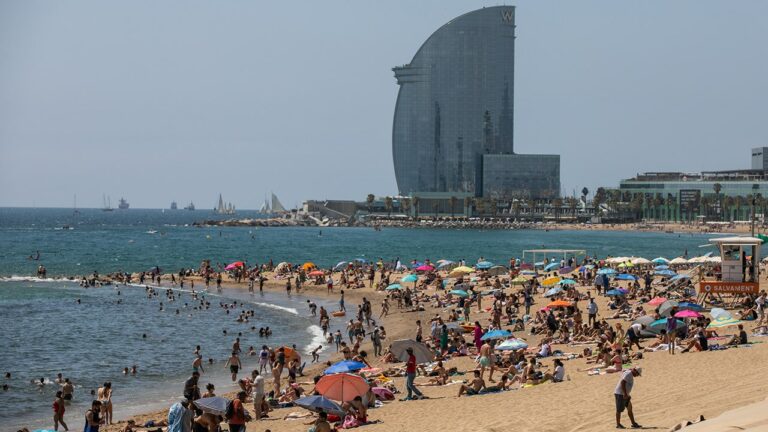London Mayor Urged to Limit Residents’ Flights to Combat Climate Change
In a renewed call for environmental action, a report from the climate activism group, C40, chaired by London Mayor Sadiq Khan, advises residents of London and several European cities to reduce their air travel. The goal? To combat climate change by cutting down on carbon emissions.
C40: Uniting Mayors for Climate Action
C40, a global network of mayors from major cities worldwide, has been working since 2019 to tackle the climate crisis. Their report suggests that residents in C40 cities should limit themselves to one “short-haul return flight (less than 932 miles) every two years per person.” The aim is to make significant progress by 2023 in reducing consumption emissions from aviation.
Reducing Flights for a Greener Future
The target recommendation by 2030 is even more ambitious: one return flight every three years, instead of every two. This goal is part of a broader effort to reduce climate change-related emissions by 50% in C40 member cities within the next decade, which includes major capitals like London, Paris, Madrid, Rome, Istanbul, Berlin, Amsterdam, and Copenhagen.
The Impact on Emissions
The report indicates that if all residents of C40 cities fly less and airlines increase their use of sustainable aviation fuel, it could result in a cumulative 43% reduction in emissions. However, it’s important to note that 46% of C40 city residents would need to cut back on their flight trips compared to 2017 levels.
Economic Implications
Limiting air travel to one flight per person every three years would have a profound impact on the airline industry. The airlines, many of which struggled during the pandemic, would find it difficult to remain profitable with such limited passengers. The report warns of potential unemployment in areas that rely heavily on tourism.
A Generic Analysis
C40 emphasizes that the report is a generic analysis of consumption-based emissions and does not prescribe specific actions for any city to adopt. It ultimately leaves decisions about lifestyle choices up to individuals.
Criticism and Response
The idea of limiting flights as a way to combat climate change has faced criticism. Some consider it impractical and out of touch with the needs and priorities of citizens. Critics argue that public officials should focus on more pressing issues, such as crime and urban decay.
As the discussion continues, the call for action on climate change remains at the forefront of the global agenda. The debate over whether limiting air travel is a feasible solution will undoubtedly persist in the coming years.

